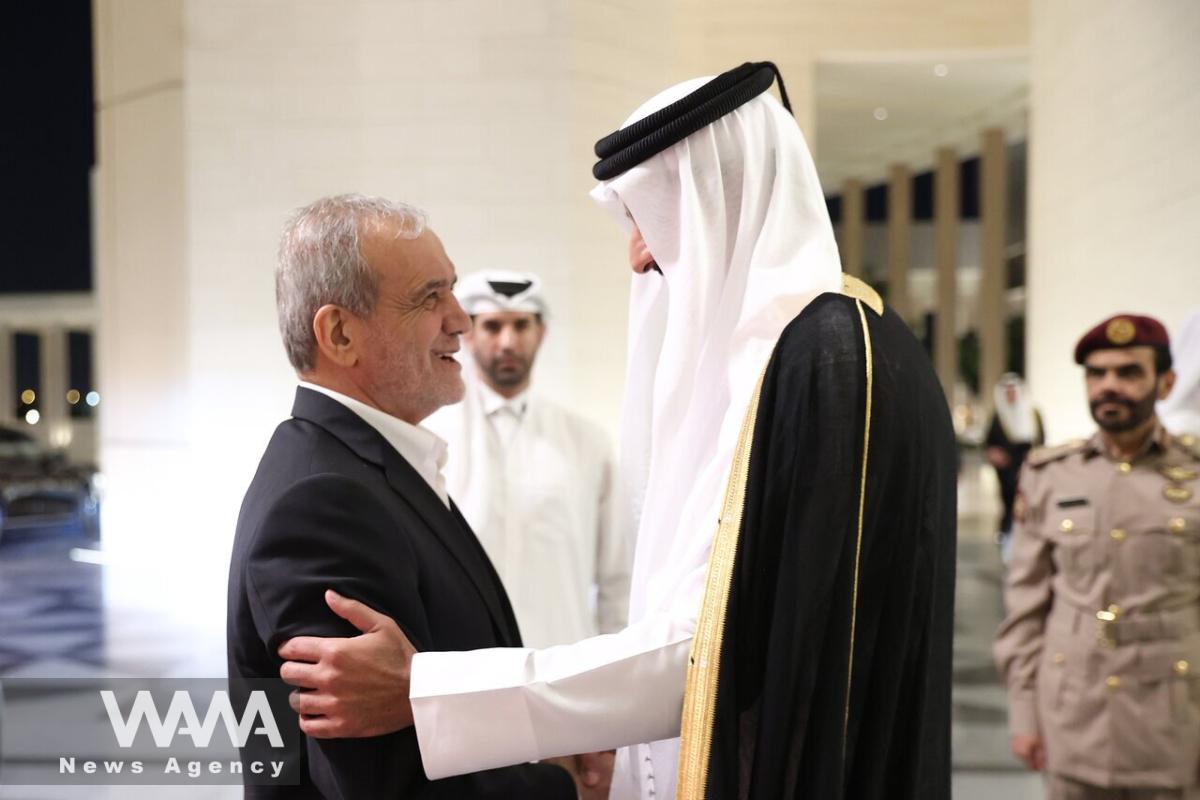Behind the Scenes of the Emir of Qatar’s Visit to Tehran
WANA (Feb 19) – The Emir of Qatar’s visit to Tehran comes at a critical time when tensions between Iran and the West, the Gaza crisis, and Iran’s economic situation have all reached a sensitive juncture.
In recent years, Doha has emerged as a key mediator and has drawn even closer to Tehran—an alliance that traces back to Qatar’s economic blockade in 2017 and has now evolved into a strategic partnership.
The Iranian president’s visit to Doha in October 2024 not only expanded bilateral relations but also carried a clear message to regional actors and Israel. This visit took place less than 24 hours after Iran’s response to the assassination of resistance leaders in Tehran and Beirut through Operation “True Promis 2”.

Iran and Qatar Sign Six Cooperation Agreements in Various Fields
WANA (Oct 03) – Senior officials from Iran and Qatar have signed six joint cooperation agreements covering a range of sectors, including economic, trade, cultural, educational, and sports cooperation. Among these, four key agreements were signed in the areas of agriculture, education, ports and maritime affairs, and culture. The Iranian Minister of Energy, serving […]
During today’s visit of the Emir of Qatar to Tehran, various issues will be on the table, ranging from economic cooperation and increasing trade exchanges to security matters and the Gaza crisis. According to informed sources, one of the most significant topics of discussion will be the release of Iran’s frozen financial assets in Qatari banks. However, this is only a small part of the larger picture.
For the past two decades, high-level visits between Iranian and Qatari officials have frequently been the subject of speculation. Many analysts interpret these visits, meetings, and contacts as indirect channels of communication between Iran and the West—especially the United States.
One of the most crucial issues under discussion is the situation in Gaza. Qatar, a long-time supporter of the region’s reconstruction, is now deeply concerned about new plans being developed by the U.S. and Israel for Gaza’s future.
A senior official in Qatar’s Foreign Ministry has stated, “The Emir of Qatar insists that no solution for the Gaza crisis is possible without considering the will and rights of the Palestinian people.” This stance aligns with Iran’s long-standing policy of supporting Palestinian resistance. In this context, the newspaper Al-Quds Al-Arabi has reported that Doha is currently exploring ways to prevent the forced displacement of Palestinians from Gaza.
One of the persistent questions regarding Qatar’s foreign policy is whether Doha is genuinely a neutral mediator or if it is playing both sides of the regional equation. While hosting the largest U.S. military base in the region, Qatar also maintains close ties with Iran.

On one hand, it provides financial assistance to Hamas, and on the other, it engages in economic dealings with Israel. This multi-dimensional approach has enabled Qatar to position itself as an effective intermediary—but how long can it continue walking this fine line without losing its balance?
Some analysts believe that the Emir of Qatar’s visit to Tehran should be viewed within the broader context of his efforts to establish an independent bloc in response to Western pressures.
Given the recent U.S. stance toward Iran, this meeting could carry important messages for global powers—especially considering that Doha has managed to maintain strong ties with both Washington and Tehran in recent years.
With the rapidly shifting global order and ongoing developments in the Middle East, a range of scenarios is possible. What is certain, however, is that Sheikh Tamim’s visit to Tehran is far more than just a routine diplomatic engagement—it is part of a larger strategic game in regional and global politics.
Tehran’s warm reception for the Emir of Qatar may be, in diplomatic terms, a response to Doha’s hospitality toward the Iranian president. However, beneath the surface, it is also a calculated move by Iran to navigate the intense pressure campaign led by the U.S. and Israel, aimed at isolating Tehran in the region.













